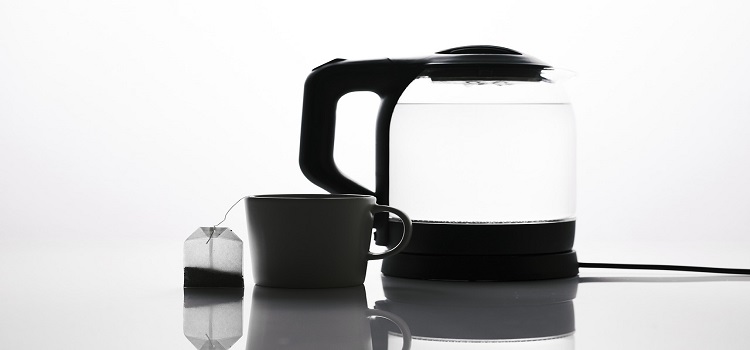As an Amazon Associate I earn from qualifying purchases.
Decoding Water Heater Noises: What to Do When it Sounds Like a Tea Kettle
Introduction:
Have you ever noticed your water heater making sounds reminiscent of a boiling tea kettle? While some noises are normal as the water heats up, others may indicate potential issues with your water heater. In this guide, we’ll explore the common reasons why your water heater sounds like a tea kettle, what they mean, and what steps you can take to address them.

Section 1: Understanding Water Heater Noises
Water heaters can produce various sounds during operation, ranging from minor hums to more pronounced noises like whistling or rumbling. Understanding the source of these noises is essential for maintaining your water heater’s efficiency and safety.
Section 2: Common Causes of Tea Kettle-Like Sounds
- Sediment Build-Up: Over time, minerals and sediment can accumulate at the bottom of the water heater tank. When heated, these deposits can create popping or crackling sounds reminiscent of a tea kettle.
- High Water Pressure: Excessively high water pressure can cause the water heater to produce whistling or hissing noises as water flows through the pipes.
- Temperature and Pressure Relief Valve Issues: A malfunctioning temperature and pressure relief (TPR) valve can lead to steam escaping from the water heater, producing sounds similar to a tea kettle.
- Loose Heating Element: A loose or damaged heating element can cause vibrations or rattling noises within the water heater tank.
Section 3: Addressing Water Heater Noises
- Flush the Water Heater: Periodically flushing the water heater to remove sediment buildup can help alleviate popping or crackling noises.
- Adjust the Water Pressure: If high water pressure is the culprit, consider installing a pressure-reducing valve or adjusting the water pressure regulator to bring it within the recommended range.
- Check the TPR Valve: Inspect the temperature and pressure relief valve for leaks or signs of damage, and replace it if necessary to prevent steam buildup.
- Tighten or Replace Heating Elements: Ensure that the heating elements are securely tightened and free of damage. If necessary, replace any worn or faulty heating elements to eliminate rattling or vibrating noises.
Section 4: Frequently Asked Questions (FAQ)
- Is it normal for a water heater to make noise?
- Yes, some level of noise is normal during the operation of a water heater, but certain sounds may indicate underlying issues that require attention.
- How often should I flush my water heater to prevent sediment buildup?
- It’s recommended to flush your water heater at least once a year to remove sediment and maintain its efficiency.
- What is the ideal water pressure for a residential water heater?
- The ideal water pressure for a residential water heater is typically between 40 and 60 pounds per square inch (psi). Excessive pressure can put strain on the system and lead to noise issues.
- Can I adjust the water pressure regulator myself?
- Adjusting the water pressure regulator should be done cautiously to avoid causing damage to the plumbing system. If you’re unsure, it’s best to consult a professional plumber.
- What should I do if I notice water leaking from the TPR valve?
- A leaking TPR valve could indicate excessive pressure or temperature inside the water heater tank. Turn off the power and water supply to the heater and consult a plumber for inspection and repairs.
- Are there any DIY methods for addressing water heater noises?
- While some maintenance tasks, like flushing the water heater, can be done DIY, it’s important to exercise caution and consult a professional if you’re unsure or if the issue persists.
- What are the consequences of ignoring water heater noises?
- Ignoring water heater noises can lead to more serious issues over time, including leaks, damage to the tank or heating elements, and decreased efficiency.
- How can I extend the lifespan of my water heater?
- Regular maintenance, such as flushing the tank, inspecting and replacing worn parts, and monitoring water pressure, can help extend the lifespan of your water heater and prevent costly repairs.
- Should I replace my water heater if it’s making loud noises?
- Loud or persistent noises from the water heater may indicate significant issues that warrant replacement, especially if the unit is old or nearing the end of its lifespan.
- Is it safe to use a water heater that sounds like a tea kettle?
- While some noises may be harmless, others could indicate safety hazards or potential damage to the water heater. It’s best to have the unit inspected by a professional to ensure its safe operation.
Conclusion:
While it’s not uncommon for a water heater to produce noises reminiscent of a tea kettle, it’s essential to pay attention to the type and frequency of these sounds. By understanding the common causes of water heater noises and taking proactive measures to address them, you can maintain the efficiency and safety of your water heating system. Remember to perform regular maintenance and seek professional assistance if you encounter any persistent or concerning
As an Amazon Associate I earn from qualifying purchases.
Leave a Reply